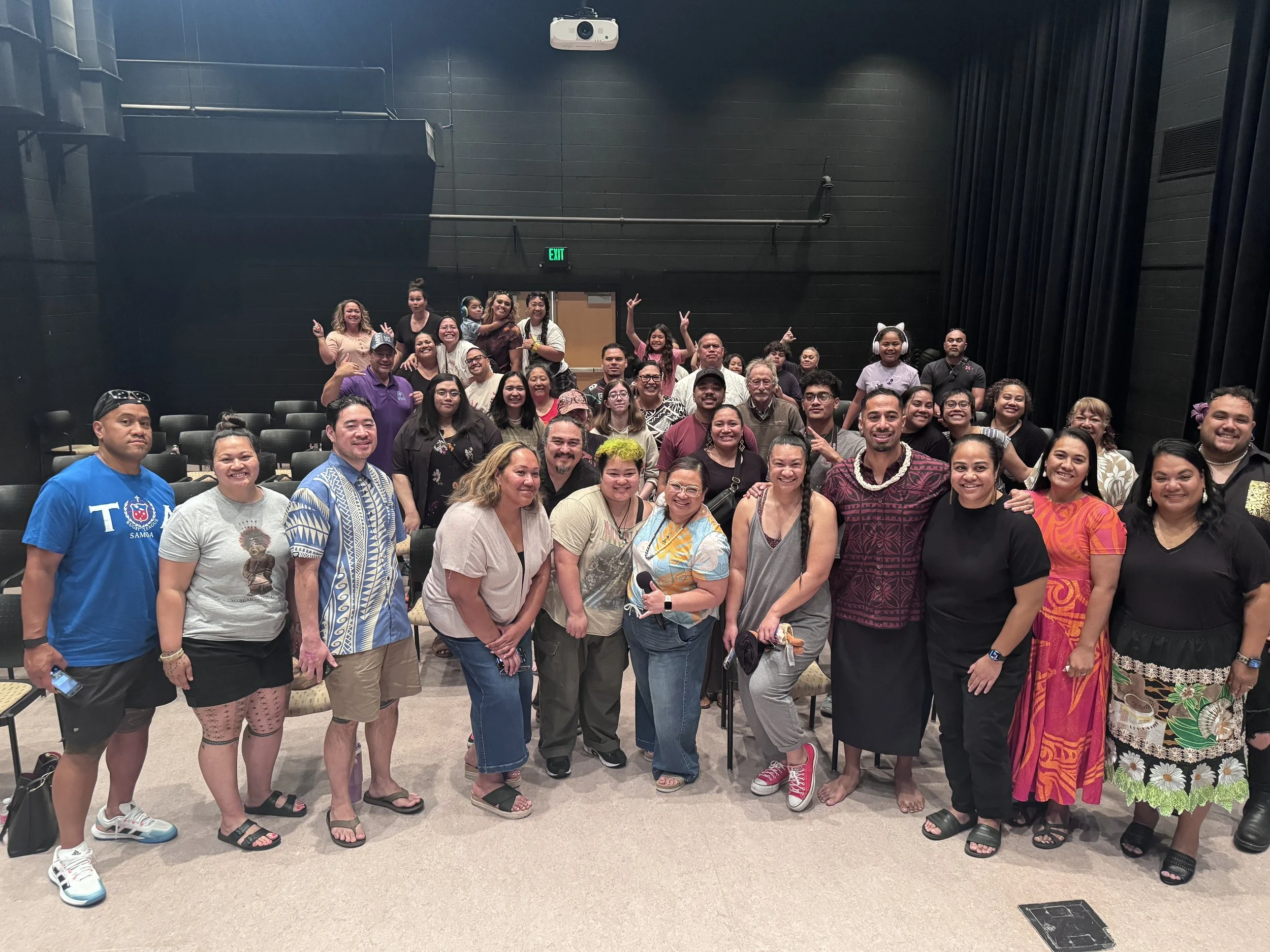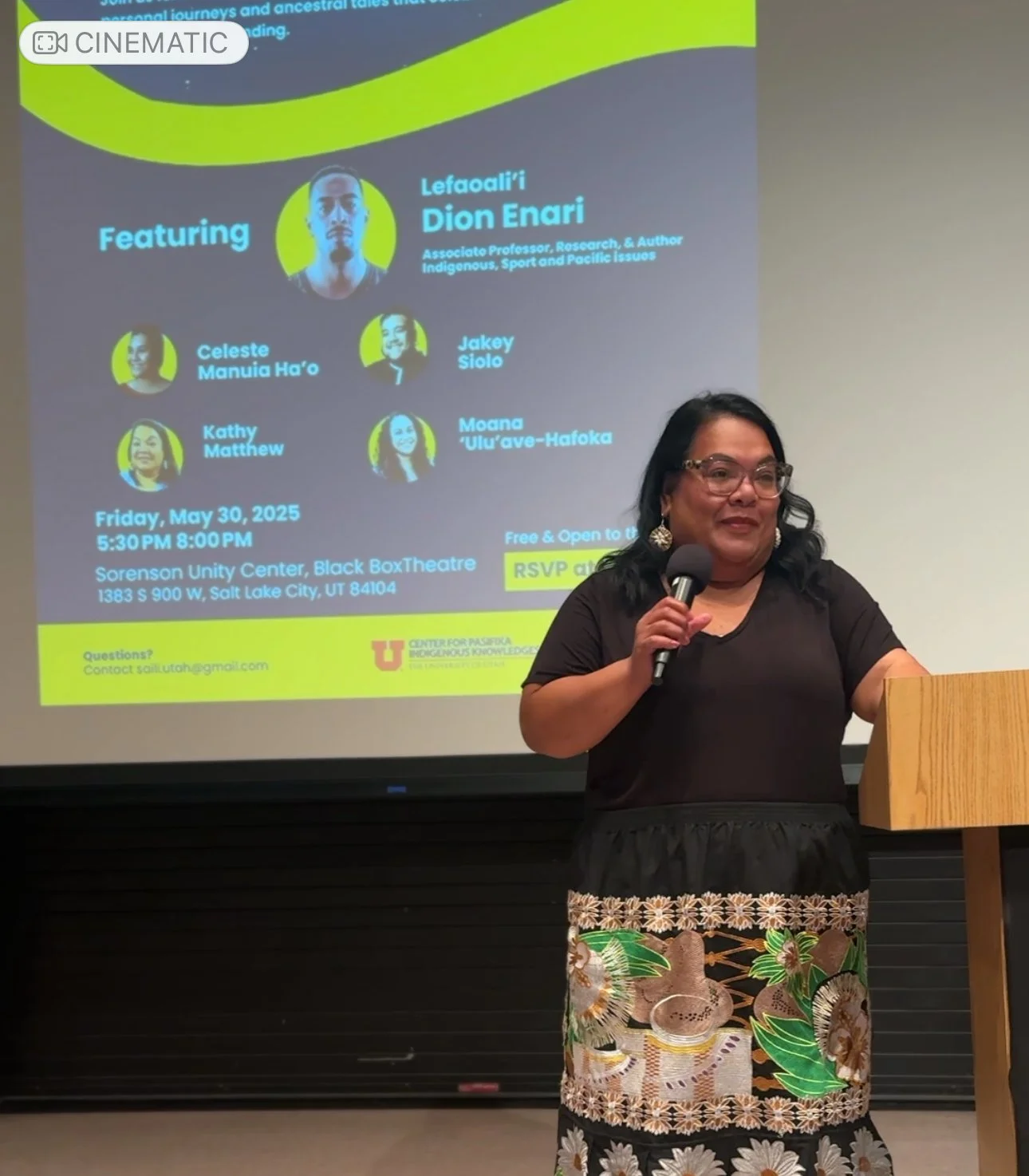Utah’s First Wayfinding Week
In May, SAILI proudly hosted our first Utah Wayfinding Week, featuring two visiting female wayfinders: Tuloutele Celeste Manuia Ha’o and Fani Bruun, Tapena of the Gaualofa. The week included keynote presentations, a community storytelling night, and the historic debut of the Samoan star compass at the Clark Planetarium in Salt Lake City.
Today, nearly 22,000 Samoans call Utah home. The first Samoans arrived as early as 1896, children of LDS converts brought by return missionaries. Some came to pursue education and, despite facing racial tensions, excelled in their studies and fields.
Wayfinding remains a core element of Pacific Islander cultures. Our languages, proverbs, customs, and community structures reflect it. The ocean connects us across the Pacific and the diaspora, continuing to ground and tie us to our ancestral homelands.
Here’s a Recap of the Week’s Events









Slideshow from Samoans in Utah presentation during Utah Wayfinding Week by Laufou Jacob Fitisemanu Jr.
The week began with a presentation by Laufou Jacob Fitisemanu, sharing a brief history of the early Samoans in Utah and their journey to the state. The research will be featured in Utah Quarterly early next year. We also heard from Tapena (Captain) Fani Bruun of the Samoan va‘atele Gaualofa.
Tapena Fani spoke about preparing the Gaualofa to sail again, training her crew, and most importantly, the urgent need to protect our oceans. The Gaualofa carries a message of education, raising awareness among Samoan youth and communities about climate change, its impacts, and the importance of sustainable practices to keep our oceans clean and healthy.
This powerful message, shared through wayfinding, is not just for the islands. It reminds those of us living on land that we are also part of the problem and part of the solution. The Samoan proverb ā logo i tai, logo fo‘i i uta states that what is felt on the sea is also felt on the land.
“We don't just carry culture, we live it, we breathe it, and the same values that guided our ancestors in living sustainably that respect for balance and relationship with the environment, are the very same values that guide us in traditional navigation.
Traditional navigation is not just about reading the stars or keeping the canoe alive. It's about keeping our heritage alive.
The chants, the healing knowledge, the language, the wisdom of sustainability, and most importantly the ability to pass it on.
You listen, you feel, you engage.
This is wayfinding.”
-Tapena Fani Bruun
The following day, we heard from Wayfinder Tuloutele Celeste Manuia Haʻo, who shared reflections on her time aboard the Hōkūleʻa and her training as a wayfinding apprentice. Her journey from the Cook Islands to Samoa weaved together wayfinding, cultural revitalization, and the sacred responsibilities of a taupou living in diaspora. Through her powerful journey, Tuloutele Celeste shared how grounding it can be to reconnect with our ancestors and navigate identity across oceans and generations.
This message carried through as the wayfinders spent the last day of school with Pacific Heritage Academy’s 6th grade Voyagers. The students spent the morning learning about Samoan wayfinding, including how to use their star compass and identify parts of the va‘a.
The central message Tuloutele Celeste shared with the students was simple and powerful: You only need one point of light to find your way.
Just like navigating the ocean, having one guiding point in life: a friend, a family member, or even a song, can help you stay on course and find your way forward.
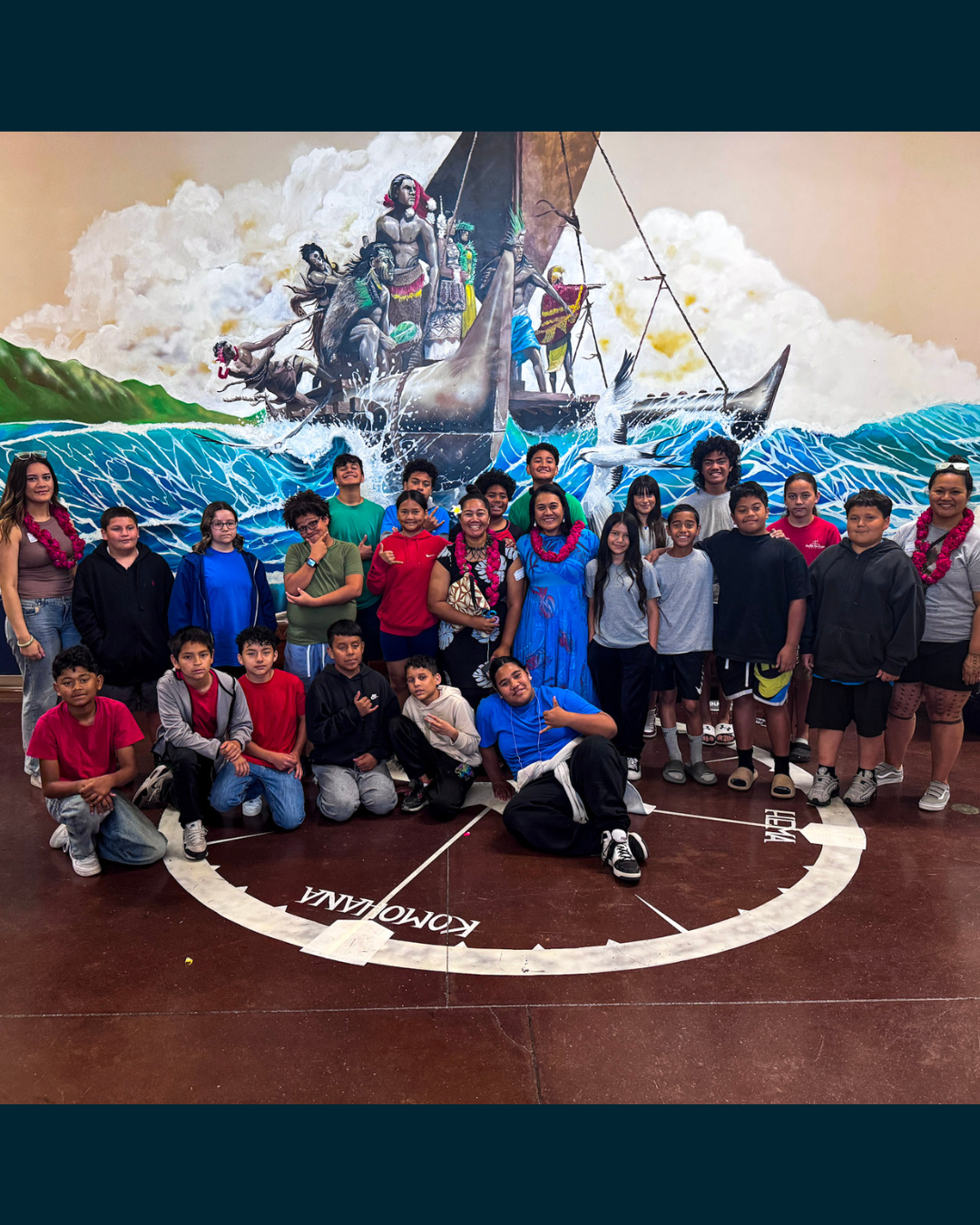

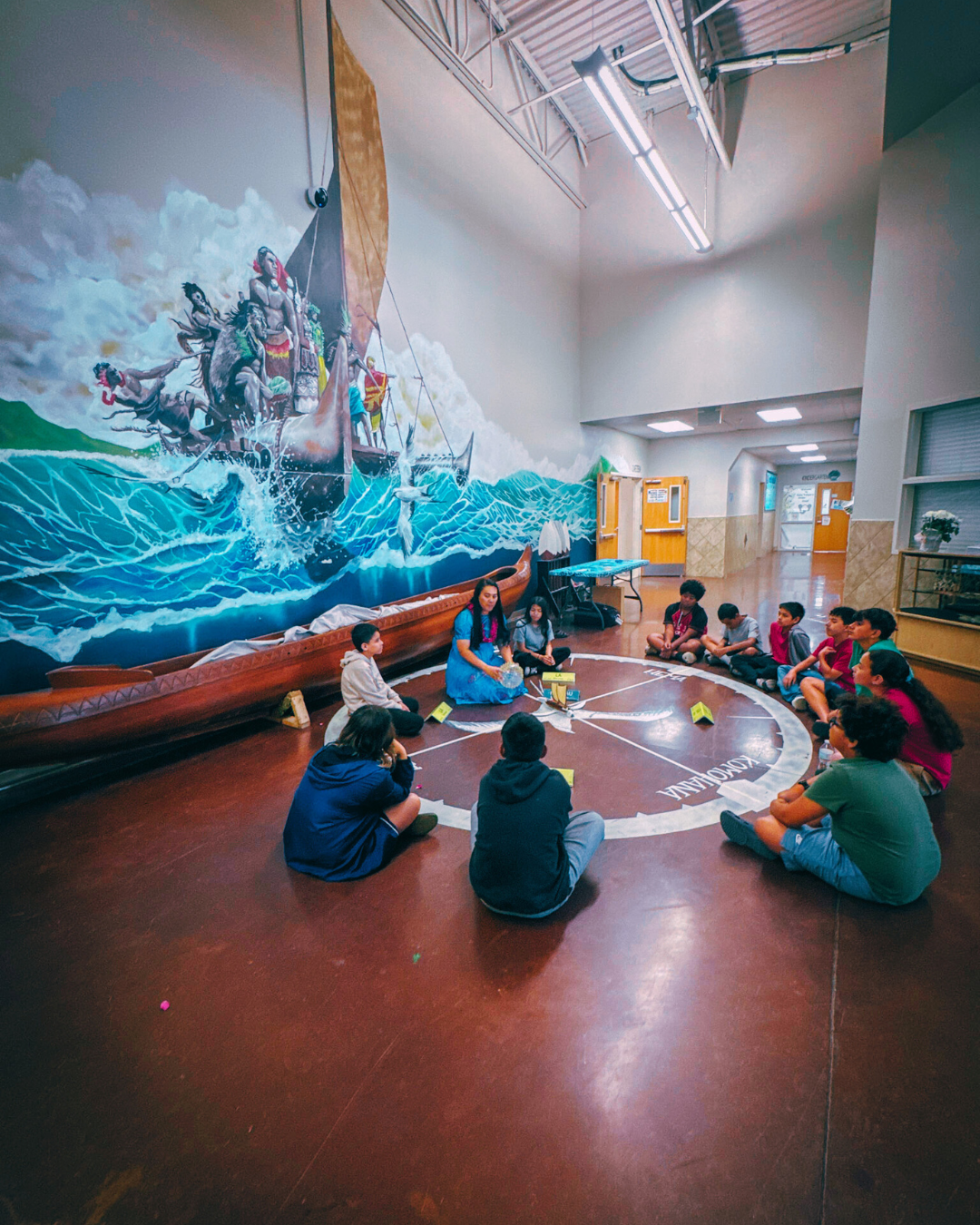
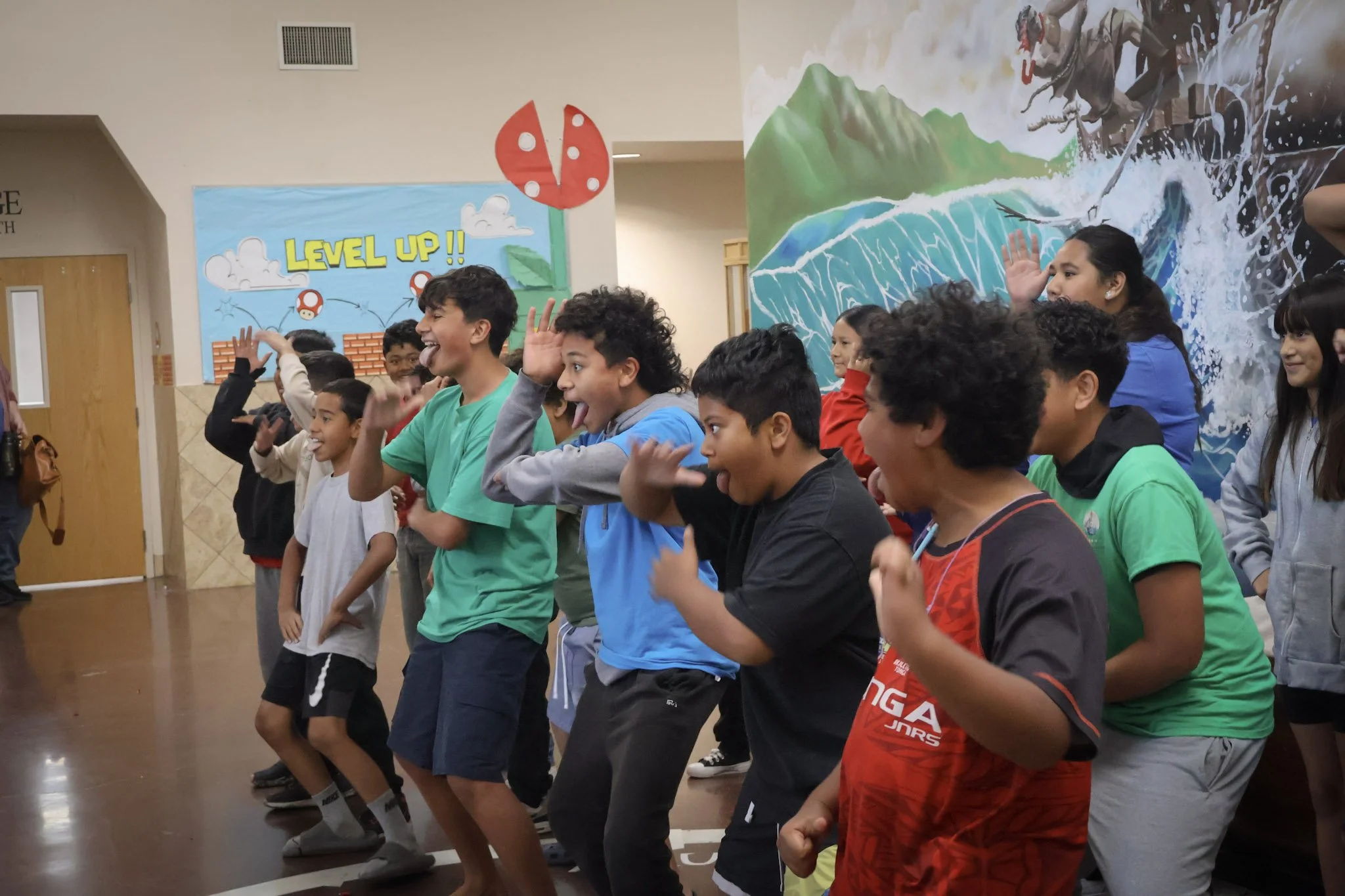
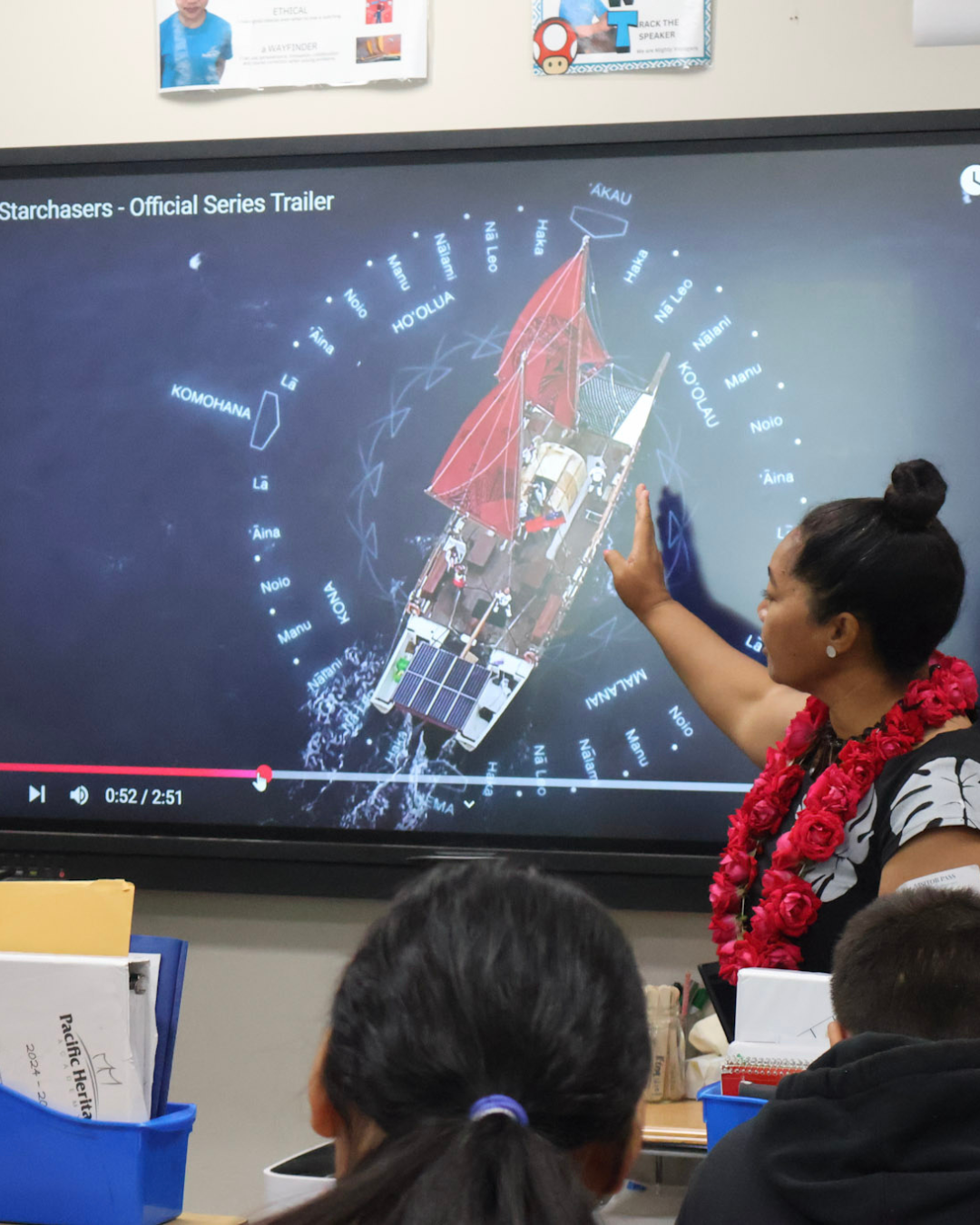
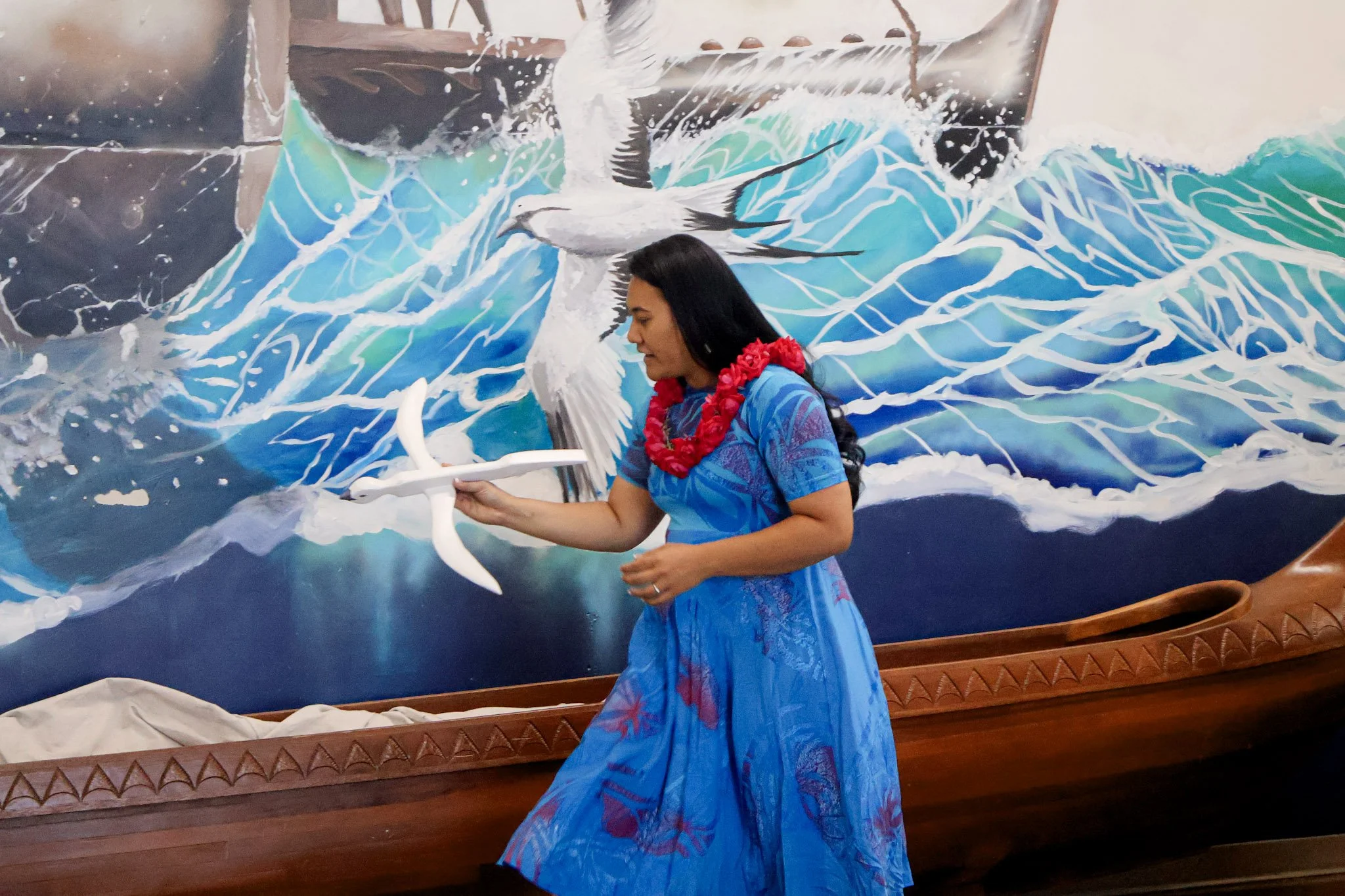
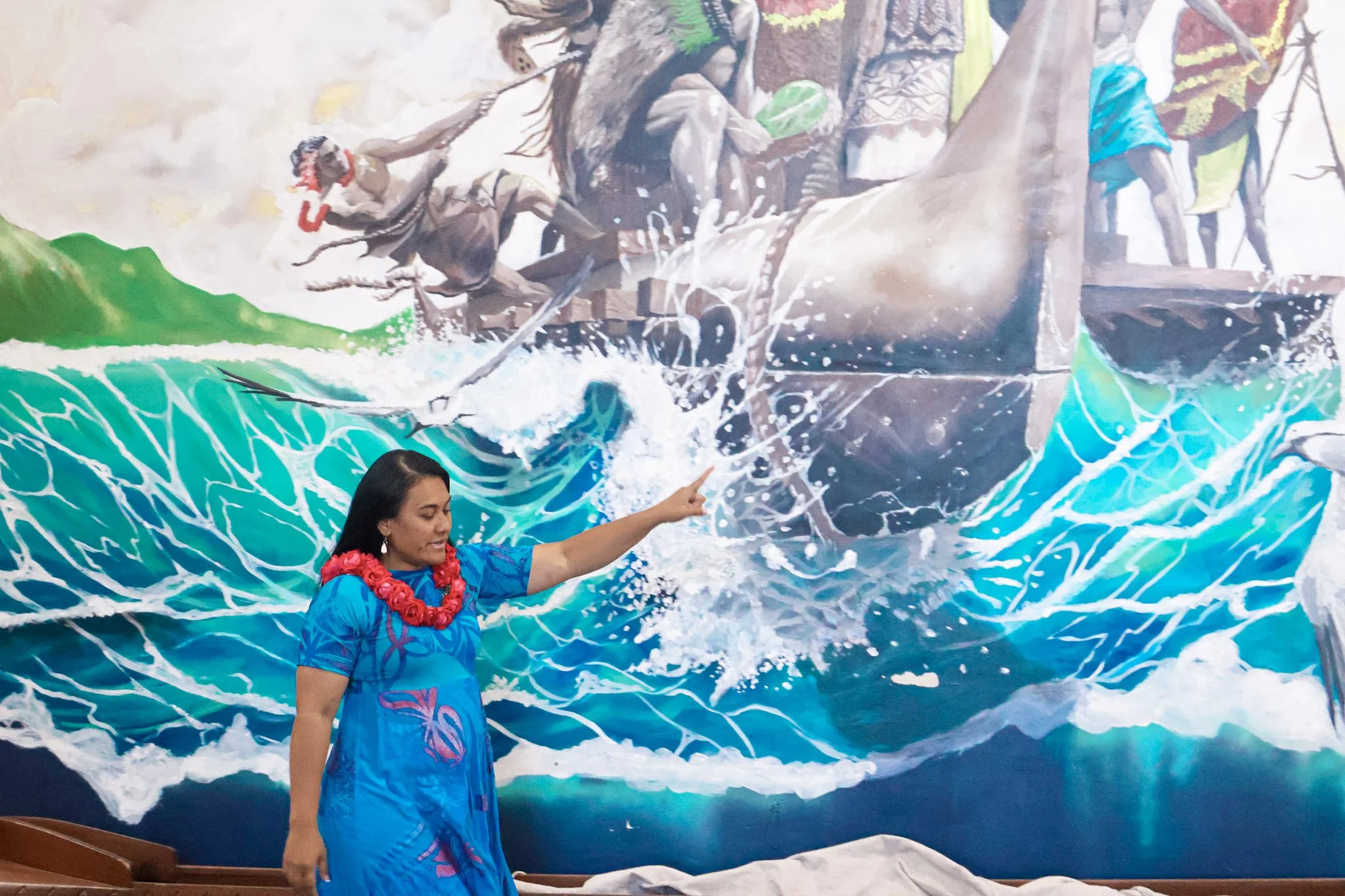
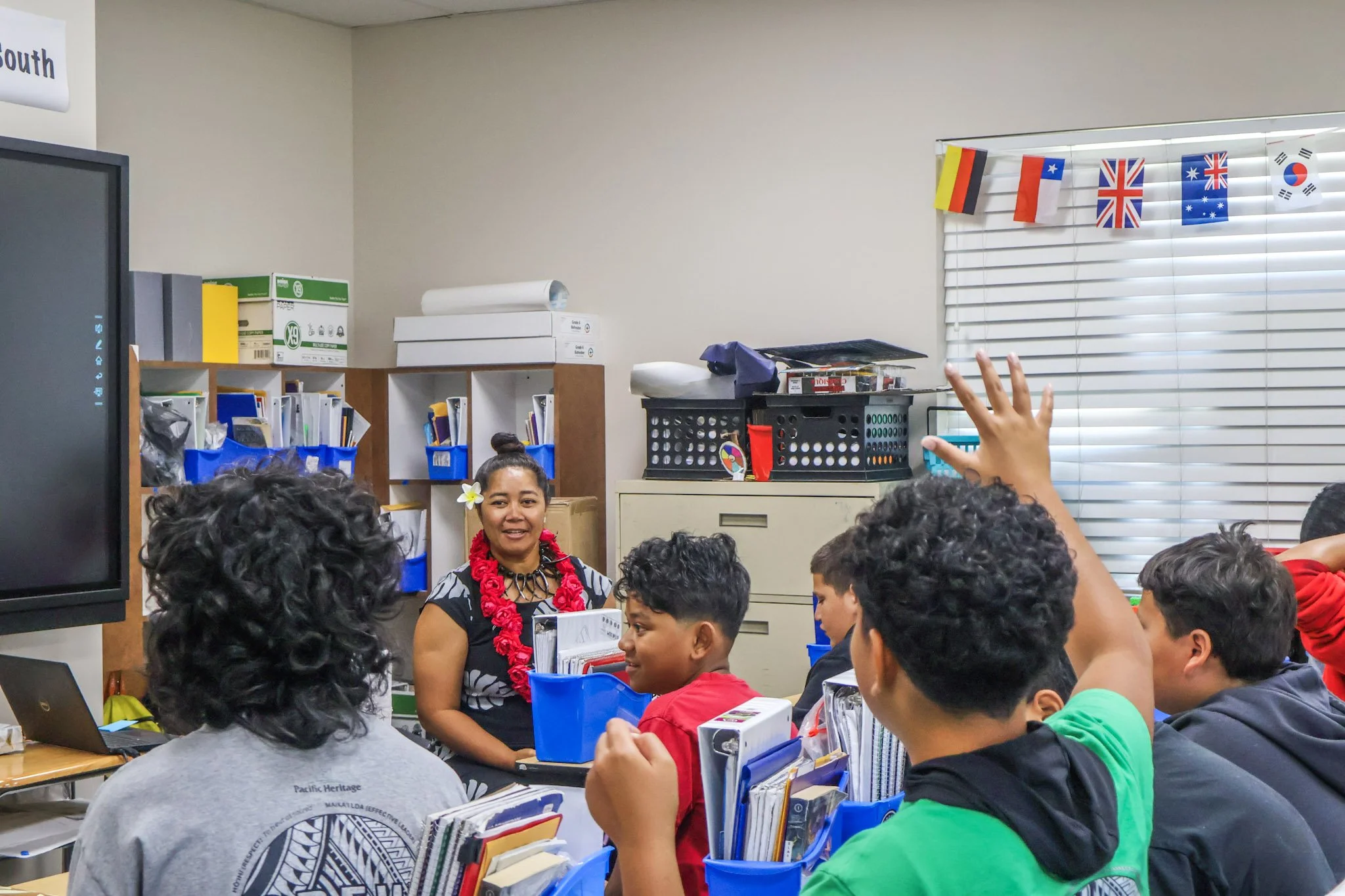
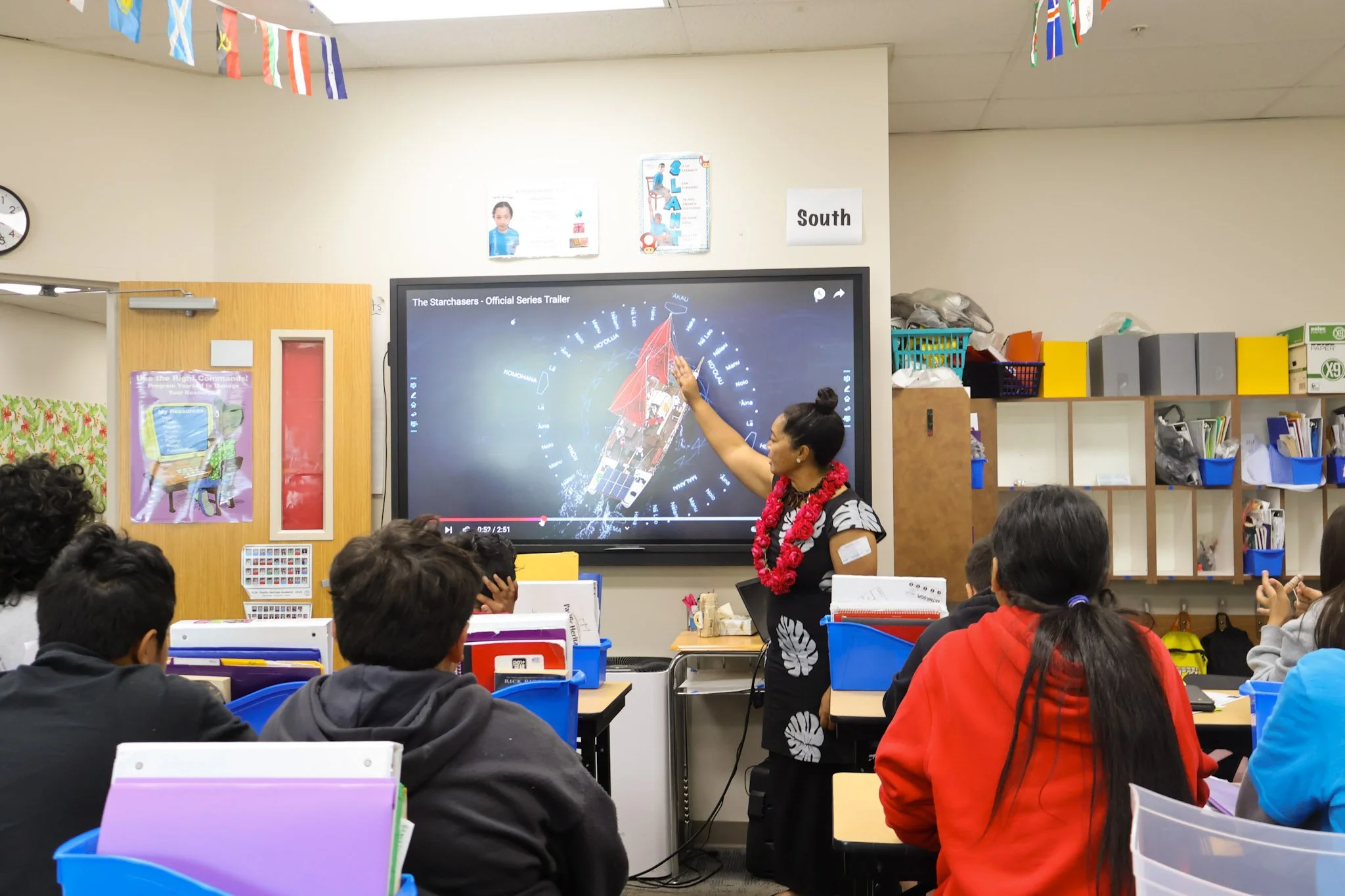
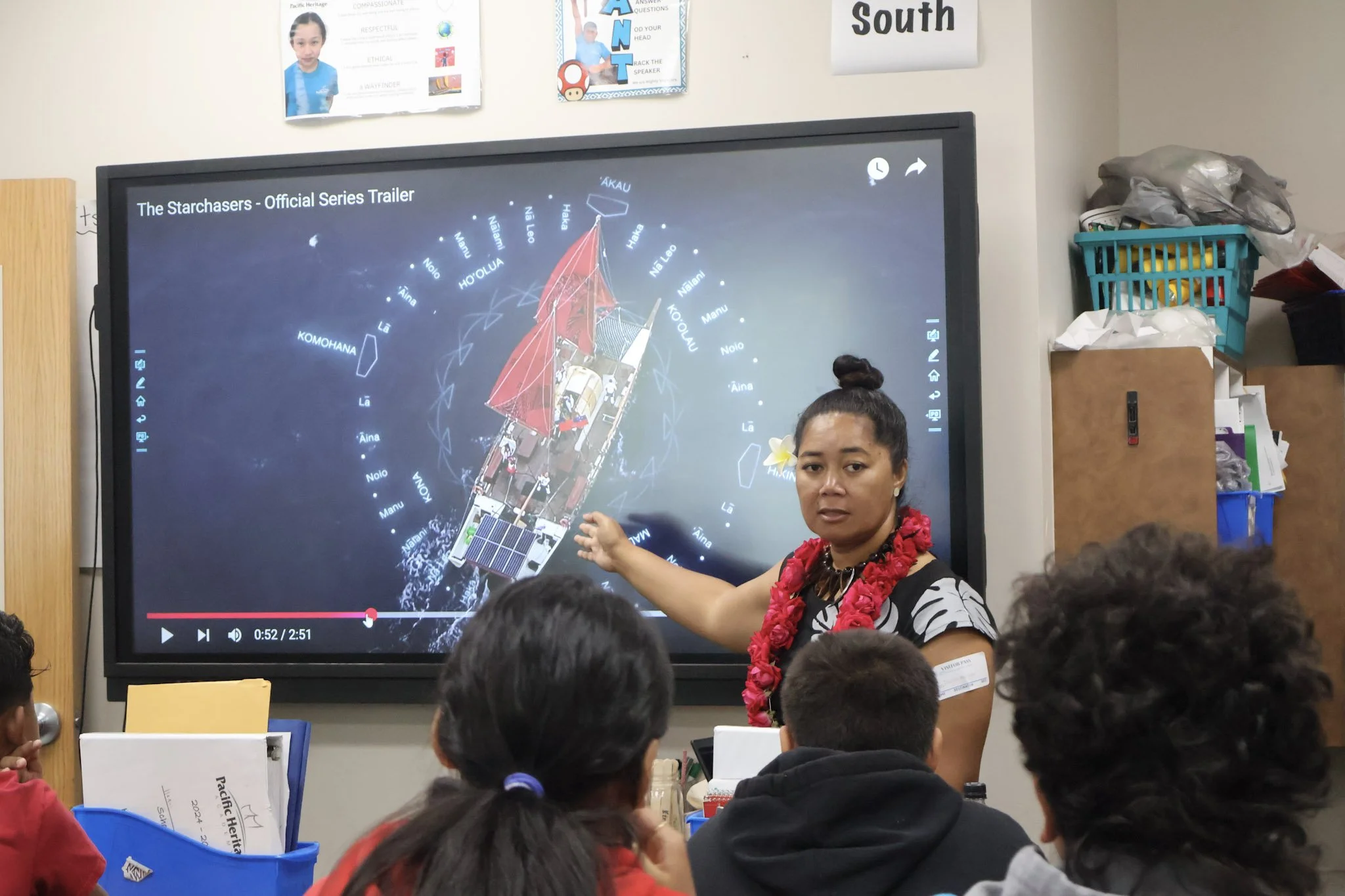
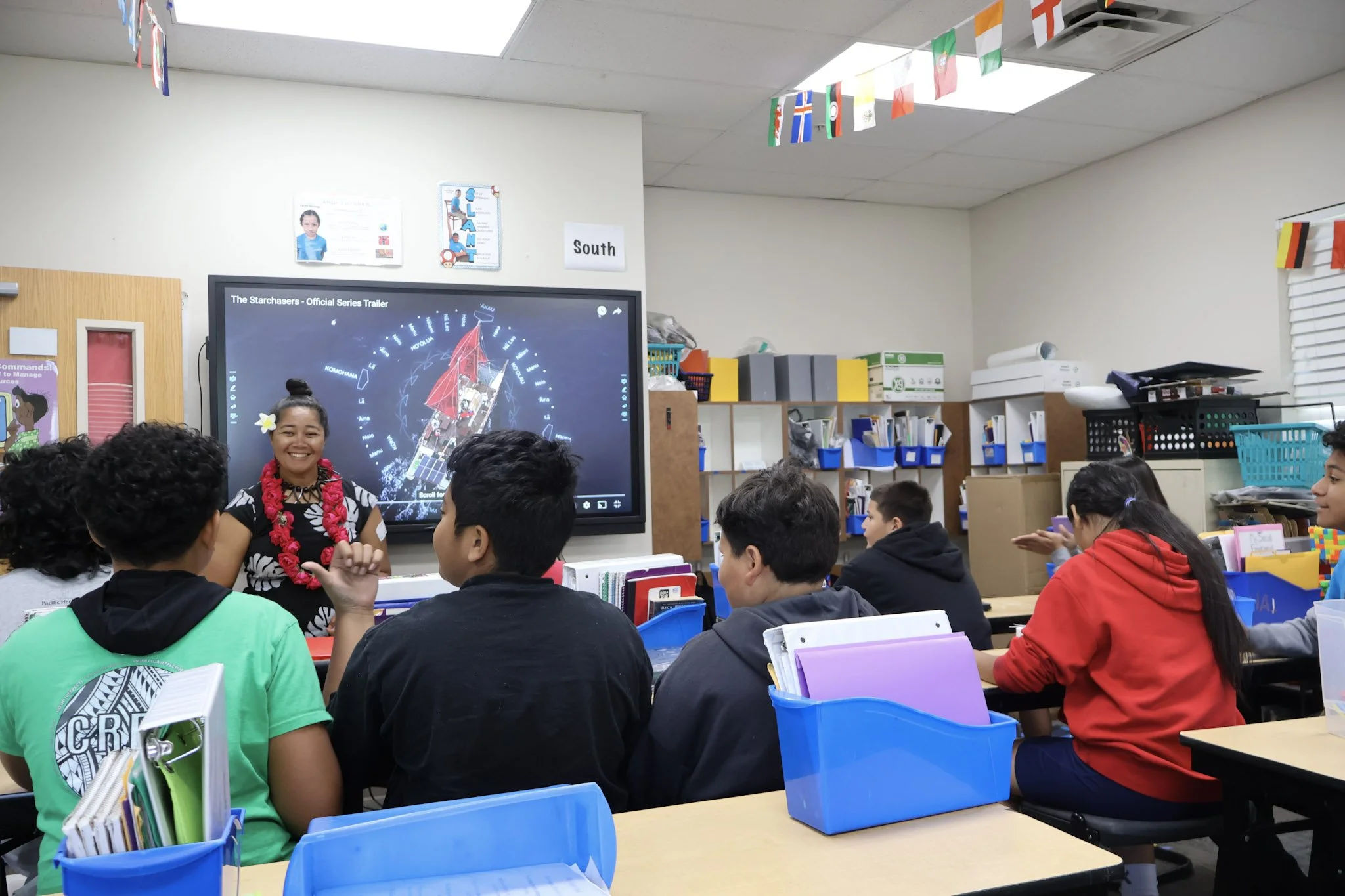


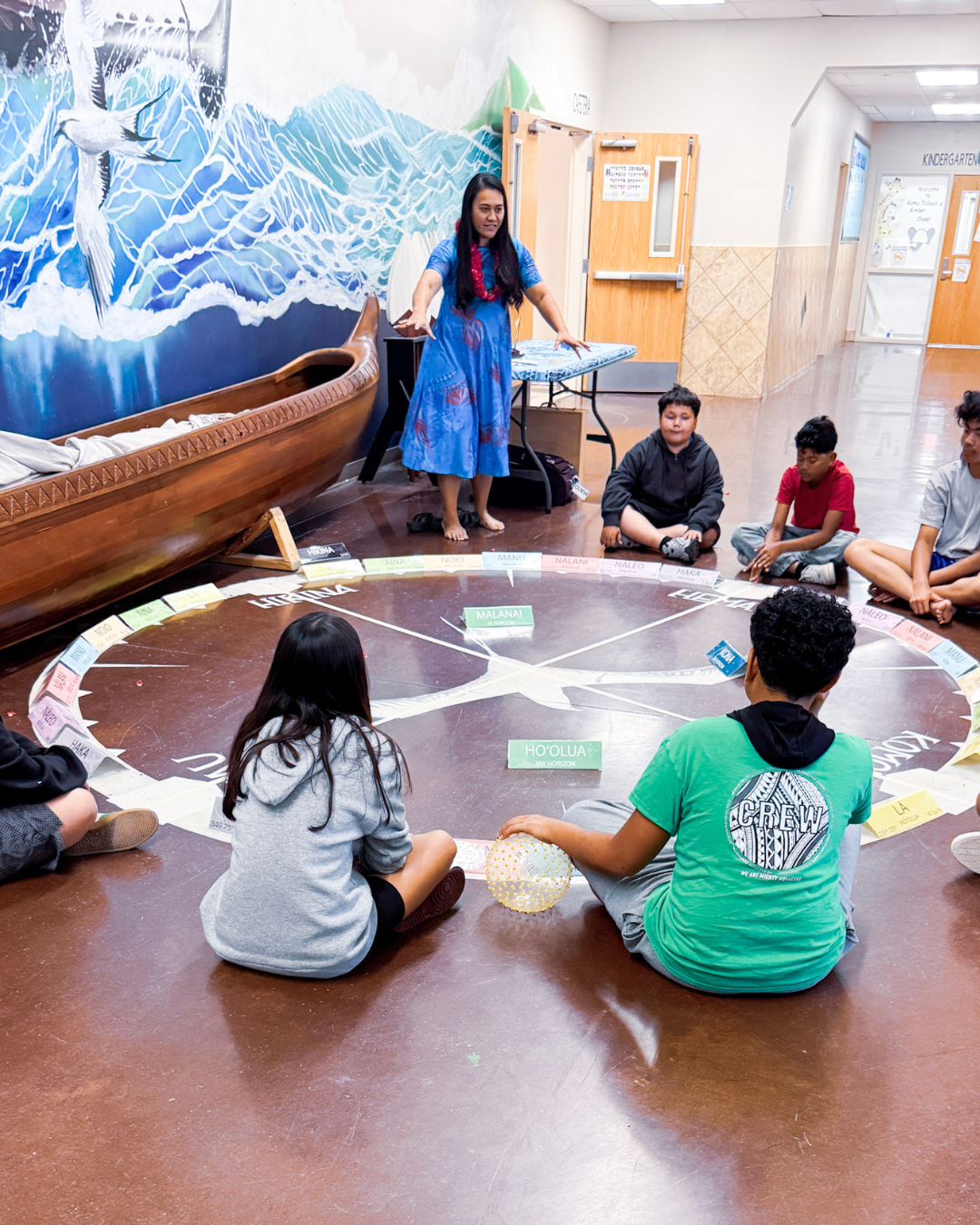
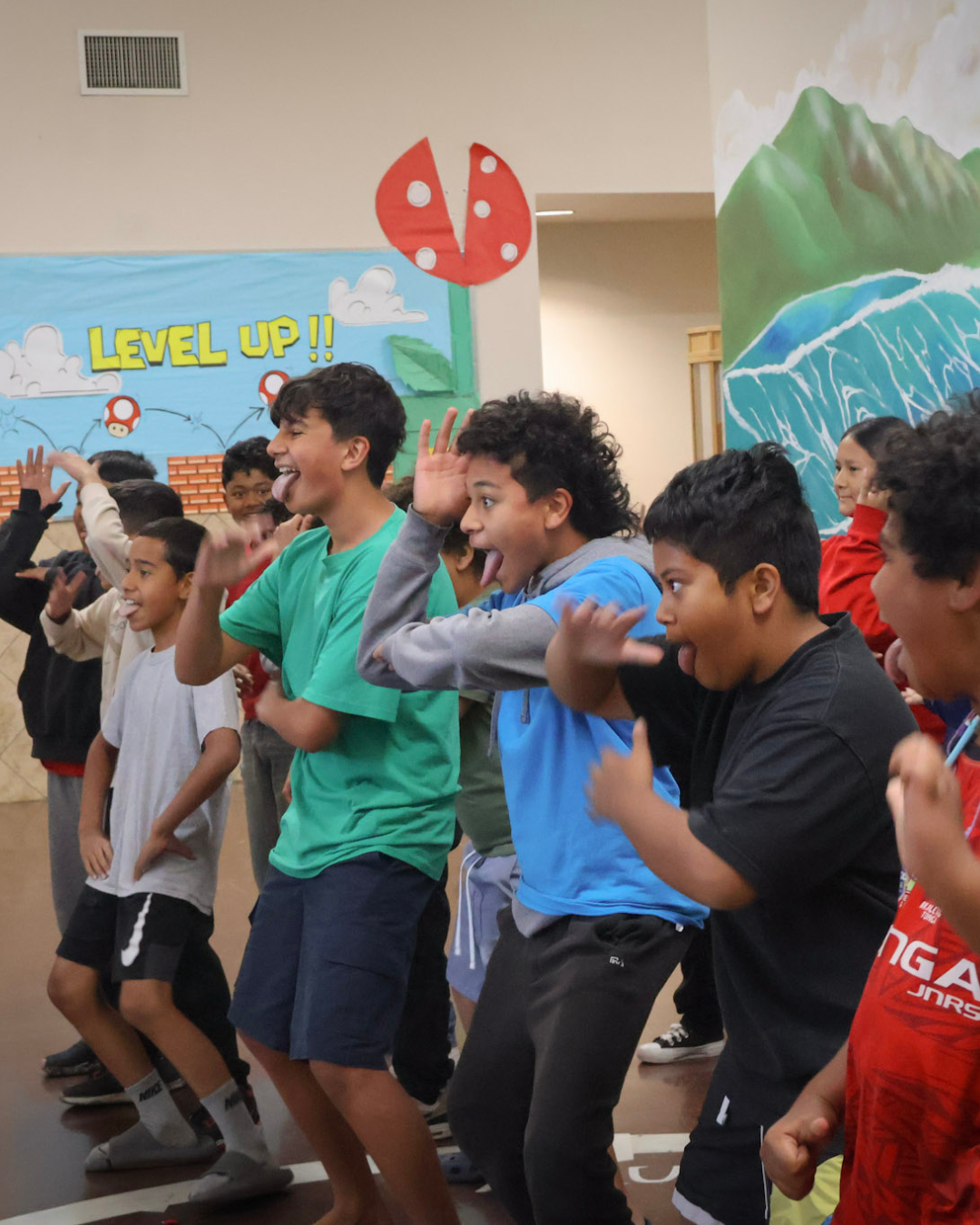
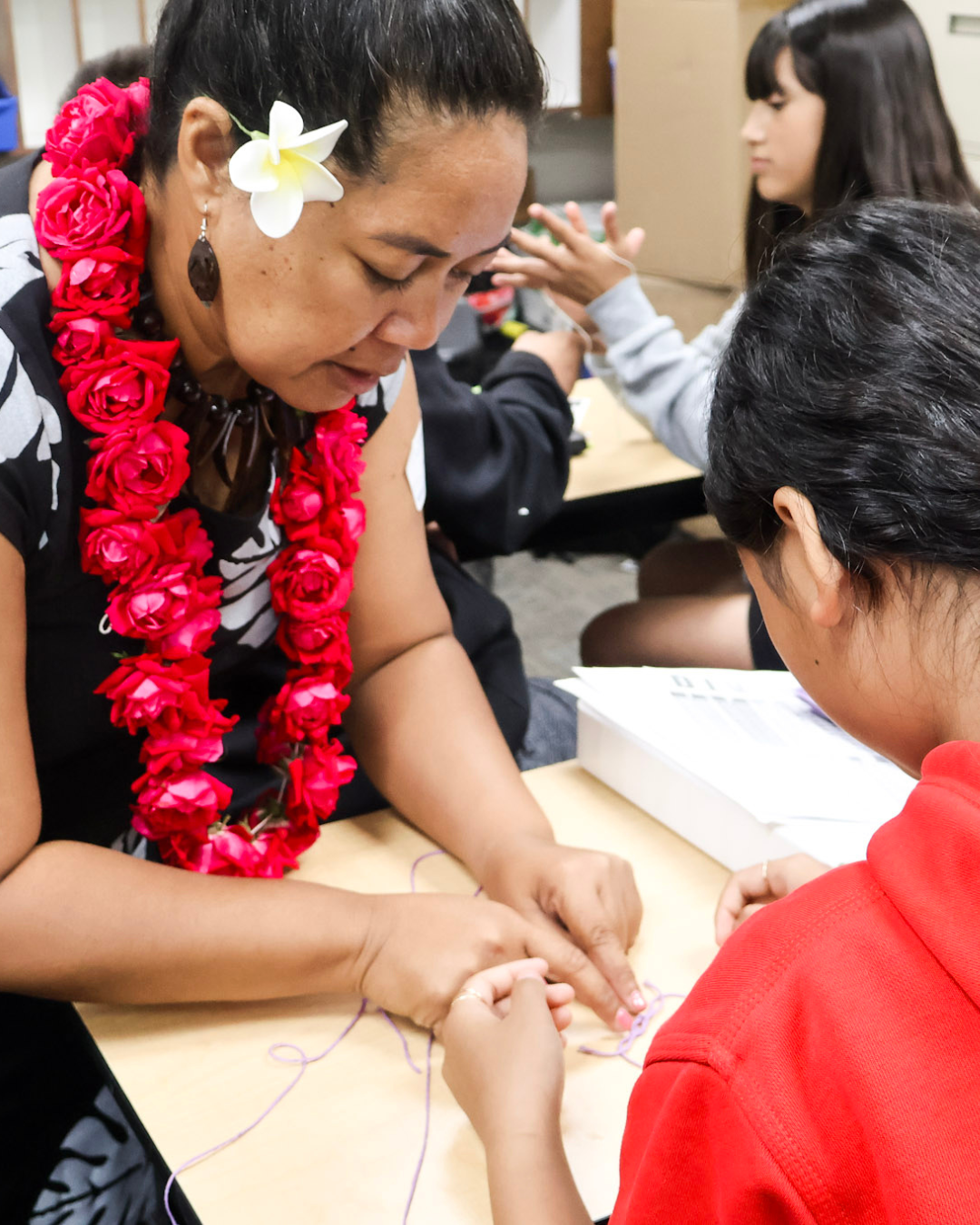
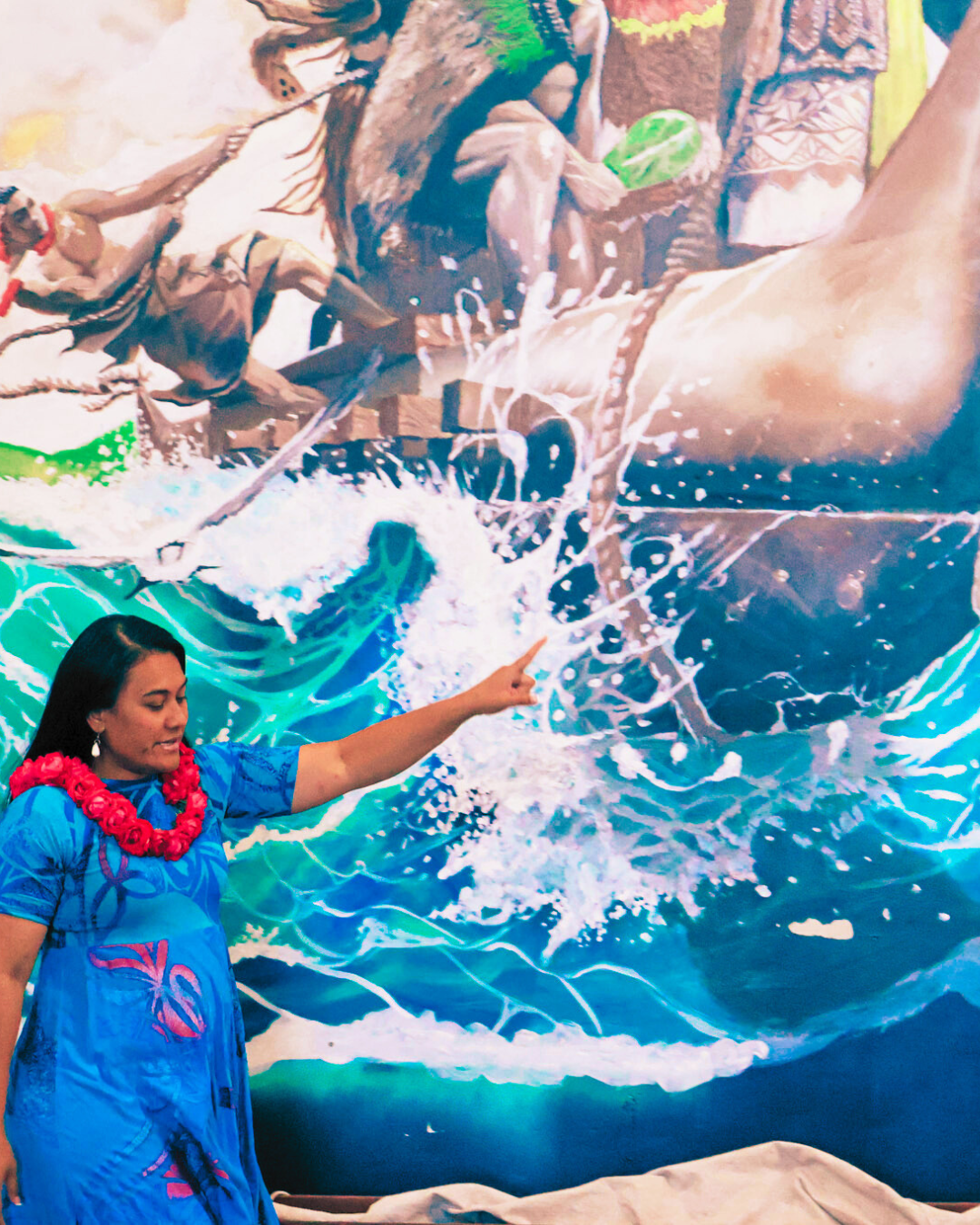
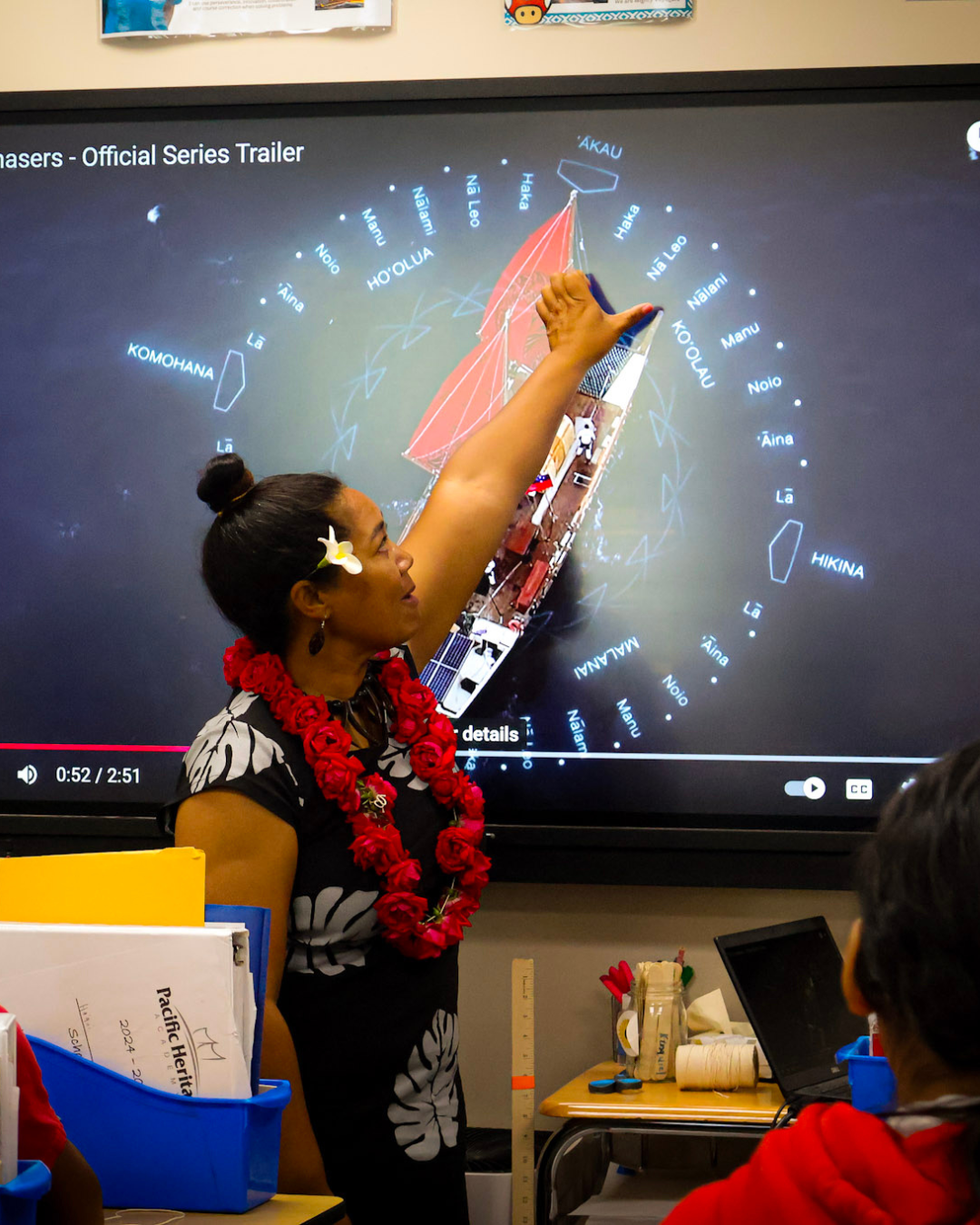
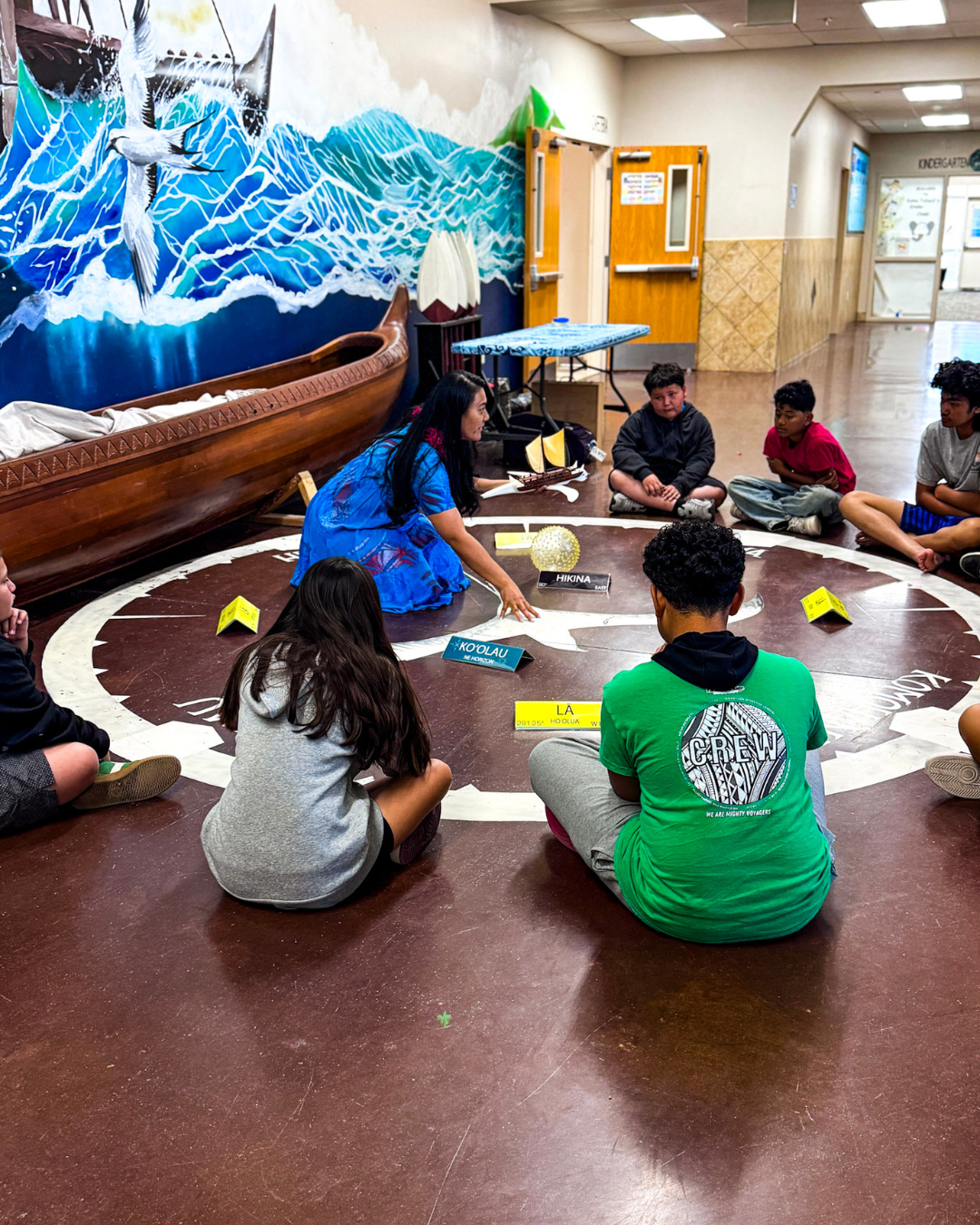
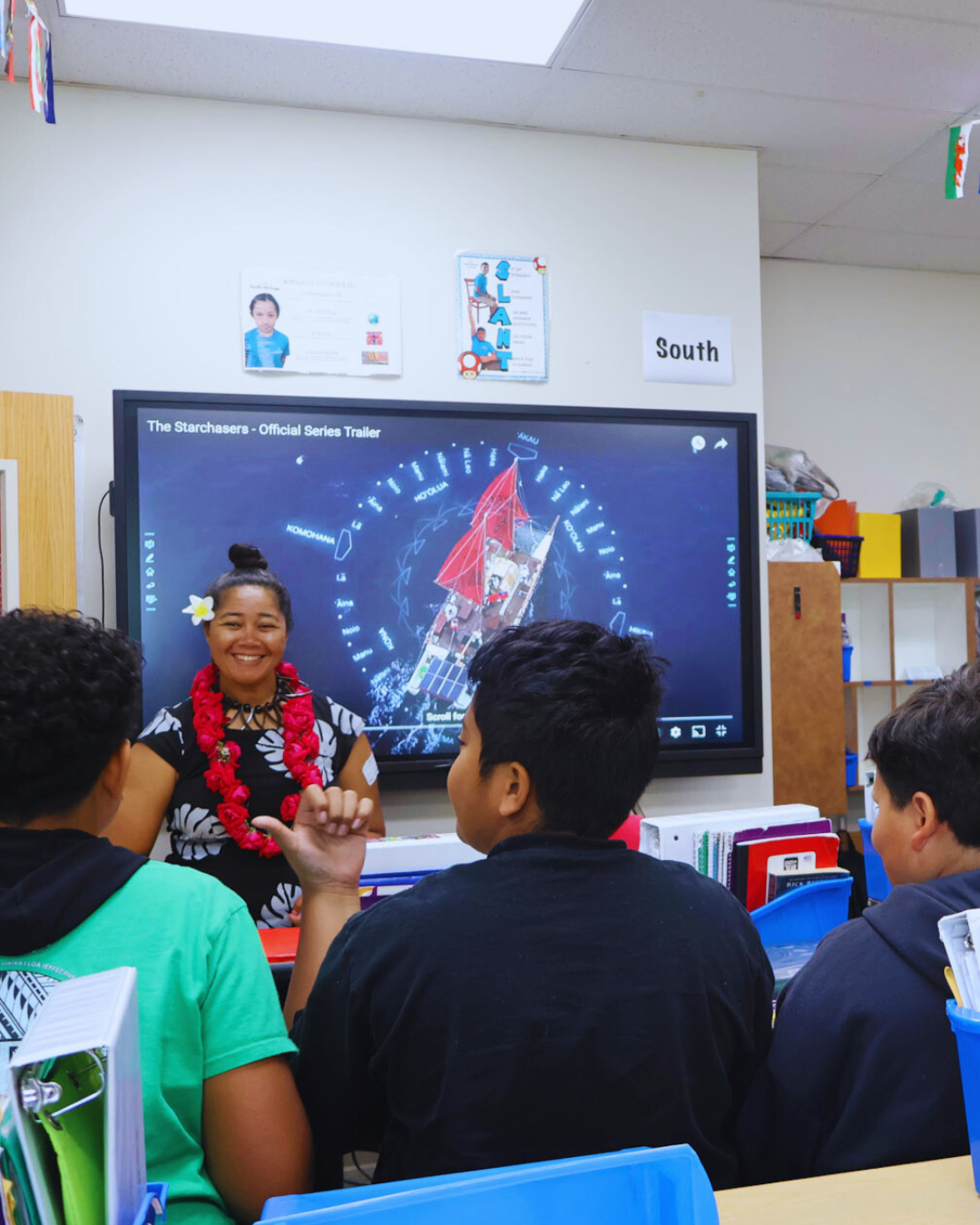
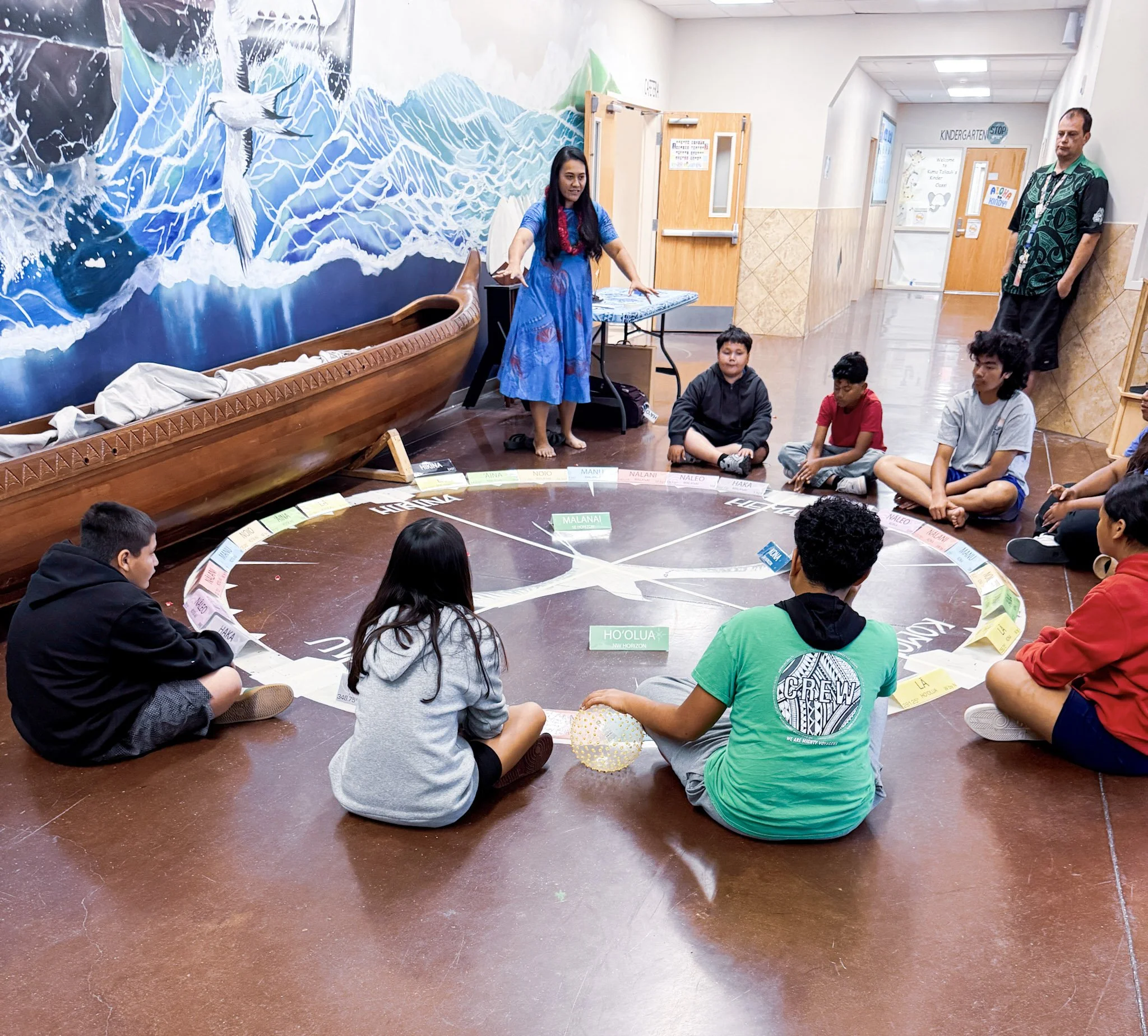
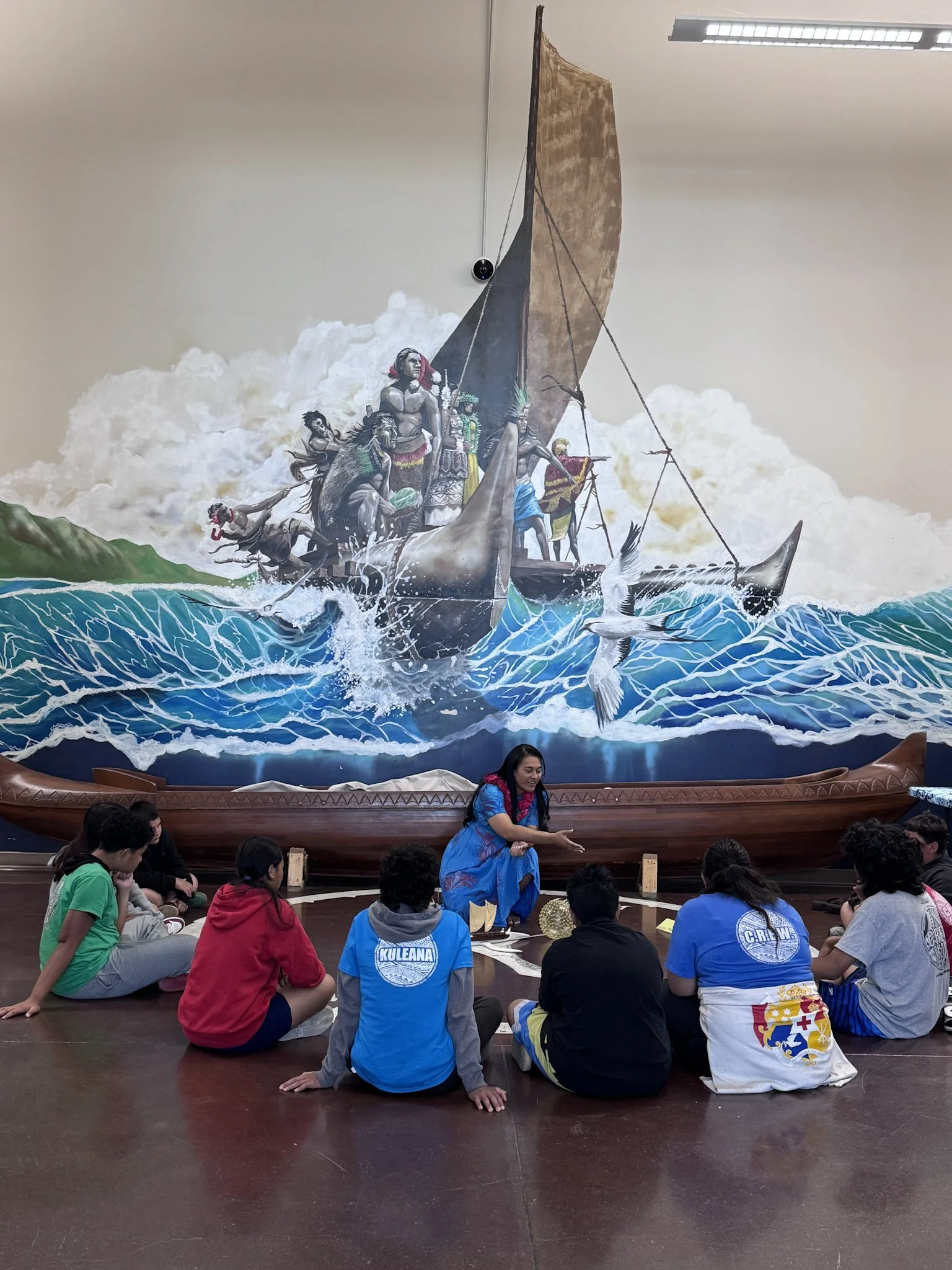
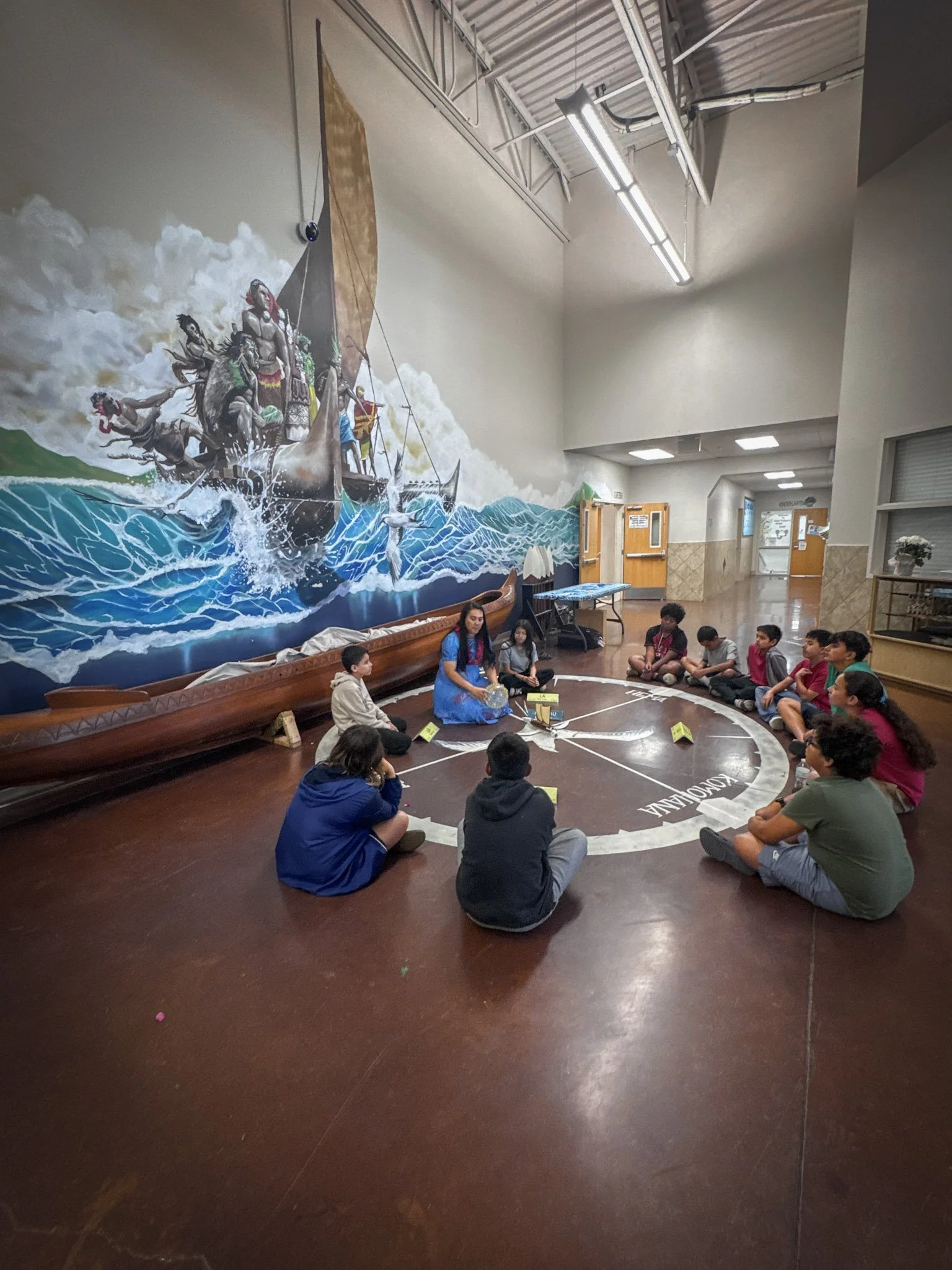
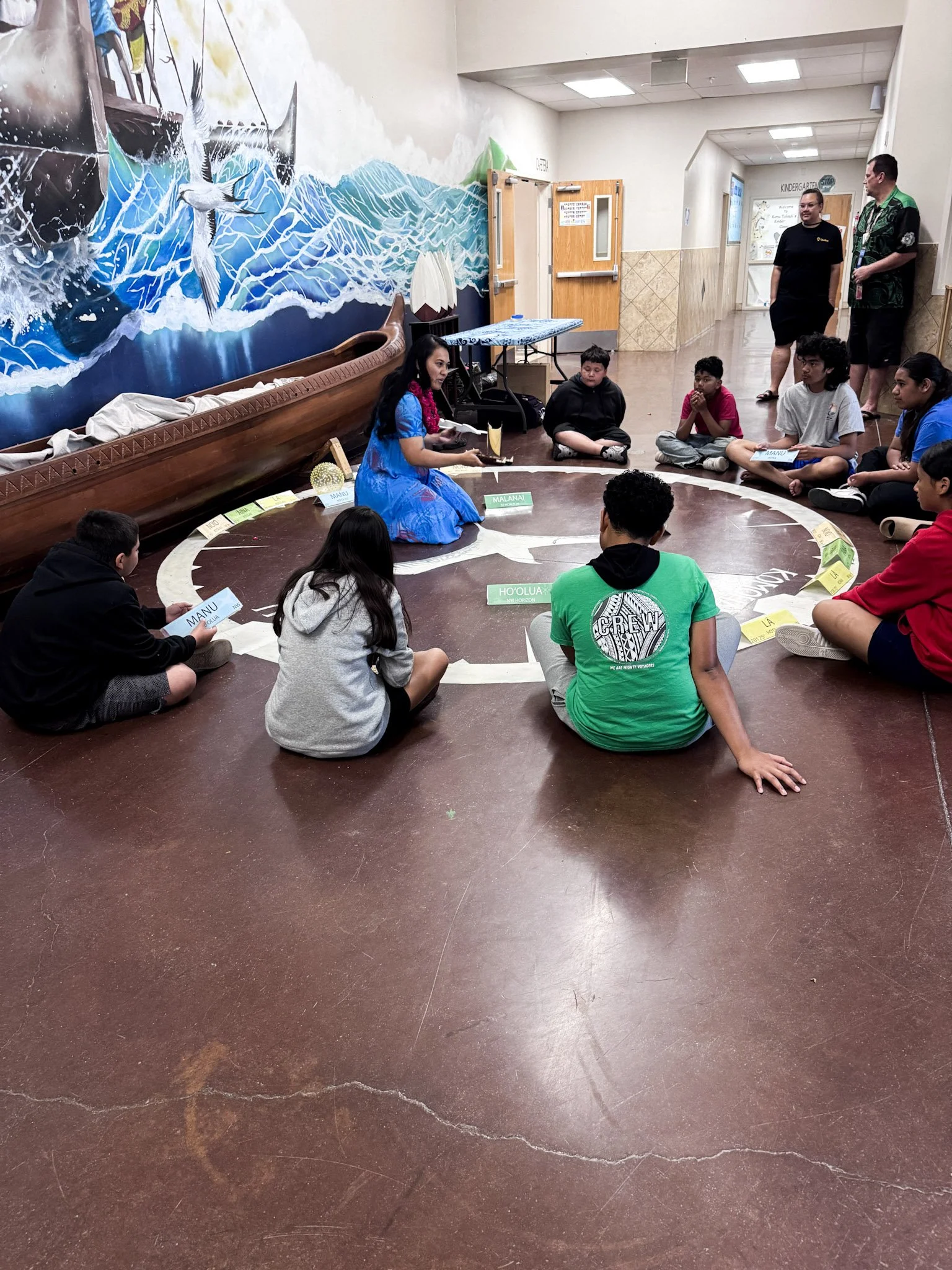
The key event of the week took place at the Clark Planetarium, where Tuloutele Celeste and Tapena Fani shared the Samoan Star Compass for the first time. This labor of love was created to help train future Samoan navigators. Participants learned about star positioning and journeyed from the skies over Utah to Hawai‘i and Samoa.
The night ended with an invitation to listen, reflect, and reconnect. Reviving Samoan wayfinding will require the wisdom of our families and elders, and we can begin by asking our parents, grandparents, and other family members what they remember.
Attendees at the Clark Planetarium had the opportunity to experience and learn about the Samoan Star Compass.
We ended the week with a storytelling night featuring both local and guest Pasifika community members. Many shared stories about wayfinding in the diaspora, coming to a new land for the first time or being born far from the islands. The stories spoke of hope, hardship, identity, and courage and highlighted the vital importance of language and cultural preservation.
